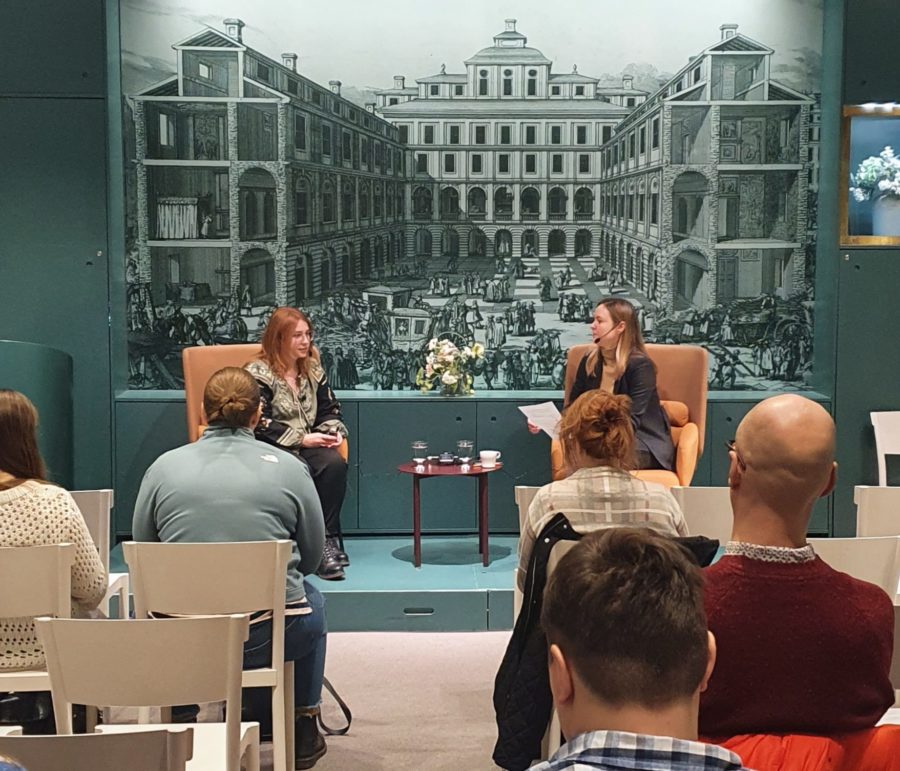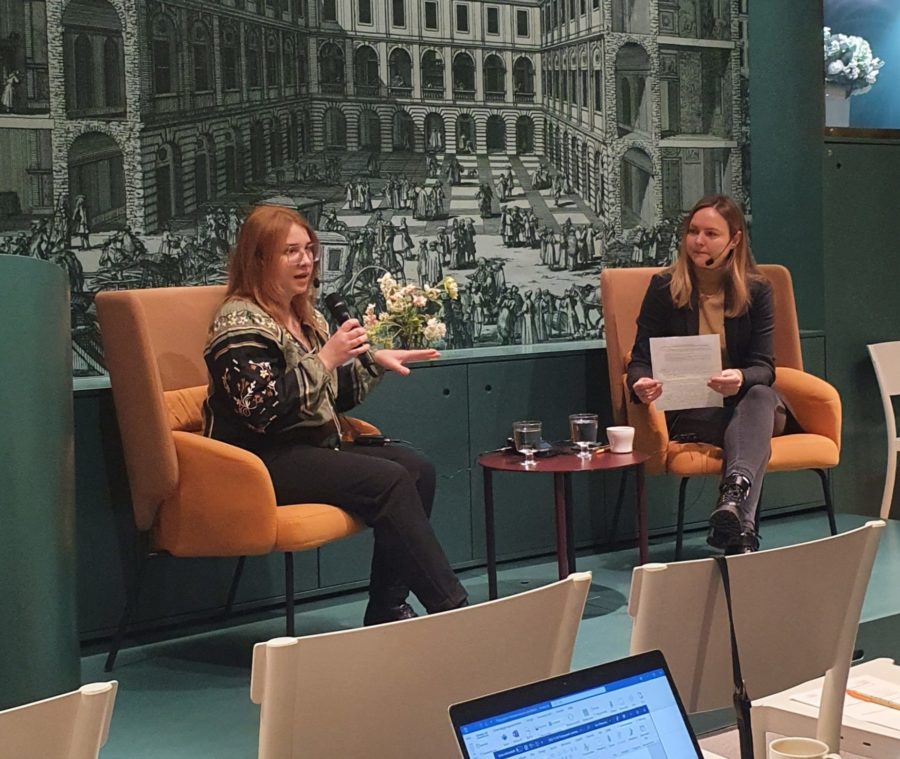ZMINA holds week of advocacy meetings in Sweden
From November 28 to December 2, ahead of Sweden’s Presidency of the Council of the EU, legal analyst at Human Rights Centre ZMINA Onysiia Syniuk held a week of advocacy meetings in Stockholm, during which she met with representatives of the government agencies and various Swedish organizations. The events were organized by Östgruppen, the Swedish organization for the development of civil society and democracy in the countries of Eastern Europe.

During the meetings with Swedish civil society representatives – leading human rights organizations such as Civil Rights Defenders, Swedish Foundation for Human Rights, etc. – the challenges and peculiarities of the activity of civil society amid the full-scale invasion were discussed, particularly how Russian crimes are documented, how civil society representatives cooperate with each other and with representatives of the state.
“Establishing personal contacts between representatives of the civil society of Ukraine and Sweden will help to create permanent partnerships for further cooperation and will allow us to convey the realities and needs of Ukrainians to Swedish society not only through government channels,” Syniuk says.
In addition, Syniuk told the Swedish media about the difficulties faced by Ukrainians, the ways to solve them, and the Ukrainian vision of the imperialist nature of Russian aggression.
Ahead of Sweden’s Presidency of the Council of the EU, it was also extremely important to meet with government officials to discuss urgent needs and types of support Ukraine needs in the long term, ZMINA legal analyst says.
“I spoke to representatives of the parliamentary committees on foreign affairs and defense, representatives of the Ministry of Foreign Affairs of Sweden about the need to put political and economic pressure on Russia, as well as on the EU Member States which by their actions inhibit important decisions and thereby allow Russia to avoid the consequences of its crimes and continue committing new crimes,” Syniuk notes.
Another important talking point was holding all criminals, including those high-ranking, to account for war crimes and the crime of aggression. The assistance to Ukraine in ensuring justice, recovering after victory, and the need for weapons were also touched upon, Syniuk emphasized.

On December 2, at the end of the advocacy trip, a seminar moderated by Karina Shyrokykh, Associate Professor in International Relations at Stockholm University, was held. Syniuk spoke about how civil society in Ukraine responded to the full-scale invasion challenges, what ZMINA and Ukraine 5 AM Coalition are engaged in, and also told in more detail about the deportation and forcible transfer of Ukrainians to the occupied territories and Russia.
“Communicating with representatives of civil society and the authorities in Sweden, it was very important to see that Ukraine is already in the spotlight. They want to hear Ukrainians and know our opinion about all the processes: what kind of help is needed, how we see our victory, and what peace means to us. I heard very often the messages I planned to promote from the Swedes themselves and even from representatives of the state who influence decision-making. Therefore, it is very important to use this period of the Council presidency of the country that is our sincere ally,” Syniuk summed up.
If you have found a spelling error, please, notify us by selecting that text and pressing Ctrl+Enter.















